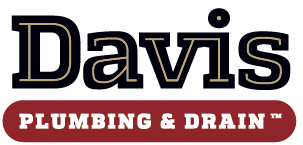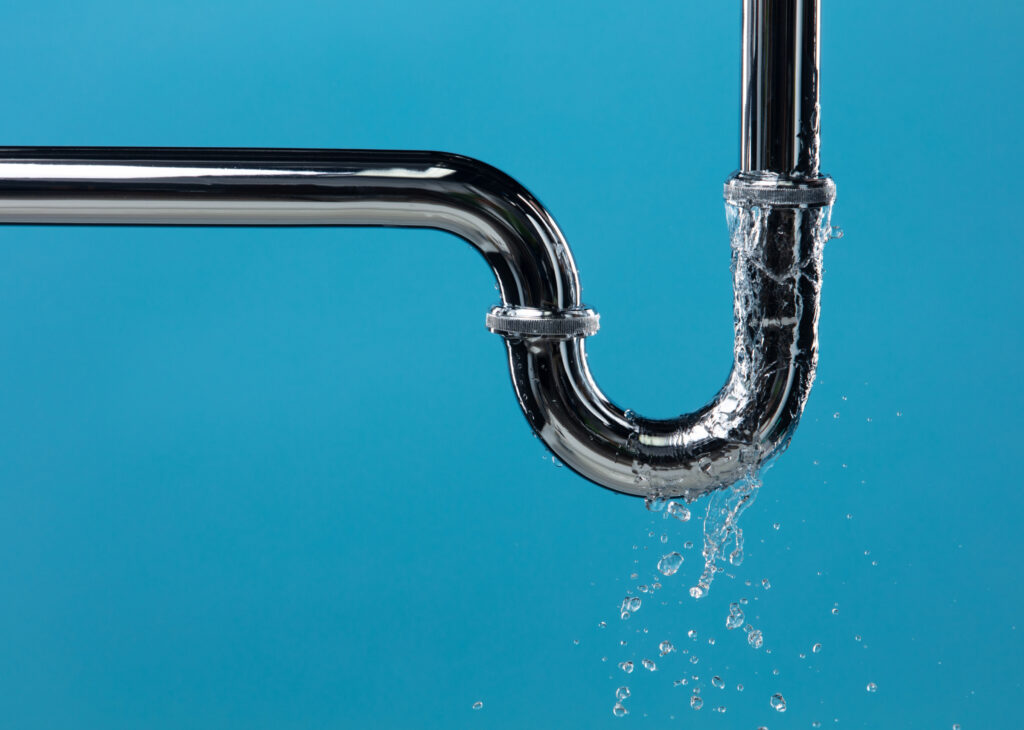When people think of plumbing disasters, they picture burst pipes or flooded basements. But many of the worst plumbing issues start quietly. From tree roots in plumbing to small leaks behind walls, the plumbing issues often build over time without any obvious warning signs.
If you’re a homeowner in Cherry Hill, Camden, Burlington, or Philadelphia, this list of nine hidden threats will show you how to avoid plumbing disasters at home—and when to call a pro.
1. Pouring Grease Down the Drain
One of the most common plumbing issues in the kitchen sink comes from pouring grease or cooking oil down the drain. While it might seem harmless, grease cools and solidifies in your pipes, leading to a clogged drain pipe and slow water flow.
Over time, this buildup attracts food debris and can cause complete blockages. The best fix? Avoid grease in the drain and schedule professional drain cleaning if you notice recurring clogs or foul smells.
2. Tree Roots in Sewer Lines
Tree roots in plumbing systems are a major problem, especially in older neighborhoods with mature landscaping. Roots are drawn to moisture and can sneak into tiny cracks in sewer pipes, growing into full-blown blockages over time.
Since this is one of the most common hidden plumbing issues, a routine sewer inspection is the only way to catch root intrusion early and avoid expensive repairs.
3. Flushing Non-Flushables
Flushing paper towels, “flushable” wipes, and hygiene products may seem convenient, but these items don’t break down in water like toilet paper. They can clump together in your main sewer line, leading to serious backups and blockages.
If your toilet or drain backs up frequently, hydro jetting may be needed to remove deep-set debris and restore your plumbing system’s flow.
4. Corrosion from Old Pipes
Older homes, especially in Philadelphia and Camden, often have galvanized steel or cast iron plumbing. Over time, these materials degrade from the inside, leading to pipe corrosion that narrows the passageway for water and can eventually cause leaks or breaks.
Early signs of corrosion include low water pressure, rusty or discolored water, and a metallic taste. If you notice any of these signs of drain damage, it may be time to replace your pipes.
5. Using Chemical Drain Cleaners
Chemical drain cleaners are marketed as a quick solution for clogs, but their harsh formulas can actually damage your pipes. Regularly using these products can wear down pipe linings and joints, setting you up for future leaks.
Instead of risking permanent damage, schedule drain cleaning with a licensed plumber who uses safe, effective tools to remove blockages.
6. Ignoring Minor Leaks
That slow drip under your sink or faucet might not seem like a big deal, but it could be the start of a bigger problem. Small leaks can weaken pipe joints, attract pests, and encourage mold growth in hidden areas.
Even worse, slow leaks can go unnoticed for months and become costly repairs. Staying alert to signs of hidden plumbing issues—like damp spots, musty odors, or peeling paint—can help prevent significant damage.
7. Poor Water Pressure Regulation
High water pressure might seem like a good thing in the shower, but if the pressure is too high, it will cause wear on your pipes. Over time, this can cause leaks, damage your pipes, joints, and appliances.
If you hear banging noises in the pipes or frequently schedule plumbing repairs, ask your plumber to test your water pressure and install a pressure-reducing valve if needed.
8. Putting Foreign Objects in Drains
Whether it’s a toy dropped in the toilet or food scraps shoved into the kitchen sink, foreign objects are a common cause of plumbing issues. Even if you have a garbage disposal, you shouldn’t put items like eggshells and bones down the drain. These items create blockages that can lodge deep in your system, making them difficult to remove without professional tools.
To avoid clogs, use mesh catchers in kitchen and bathroom drains. If your drains are backing up, sewer cleaning may be required to clear out stubborn debris.
9. Neglecting Preventative Maintenance
One of the biggest threats to your plumbing system is simply not paying attention to it. Over time, grime, grease, and corrosion can build up inside your pipes. Without regular inspections or cleaning, these issues will go unnoticed until they create an emergency.
That’s why routine sewer inspections are essential. They help you spot problems early and maintain healthy pipes year-round.
Don’t Let These Plumbing Problems Sneak Up on You
Many plumbing issues begin silently—behind walls, under floors, or deep in your yard. But with a little prevention and some expert help, you can protect your home from major damage.
Davis Plumbing proudly serves Cherry Hill, Camden, Burlington, Philadelphia, and the surrounding areas with expert drain and sewer solutions. Whether you’re dealing with pipe corrosion or want to prevent future issues, our licensed plumbers are here to help. Contact us today to schedule a plumbing inspection or cleaning service.
Frequently Asked Questions About Hidden Plumbing Problems
What are the most common hidden plumbing problems in older homes?
The most common plumbing problems in older homes are leaky pipes and tree root damage. Older pipes often suffer from corrosion, and root intrusion is common in homes with mature landscaping.
Is it safe to use chemical drain cleaners?
No, it is not safe to use chemical drain cleaners. Chemical cleaners can erode your pipes over time and often don’t fully solve the clog. Professional drain cleaning is safer and more effective.
How do I know if my sewer line is damaged?
To check if your sewer line is damaged, look for signs like gurgling drains, sewage smells, frequent backups, or water pooling in the yard.
Can tree roots really break pipes?
Yes, tree roots can break pipes. Tree roots can grow into cracks and expand over time, breaking apart the pipe and blocking the flow of water and waste.
How often should I have my drains or sewer lines cleaned?
You should have your drains or sewer lines cleared every one to two years, especially if you’ve experienced past issues or have large trees near your home’s sewer line.

